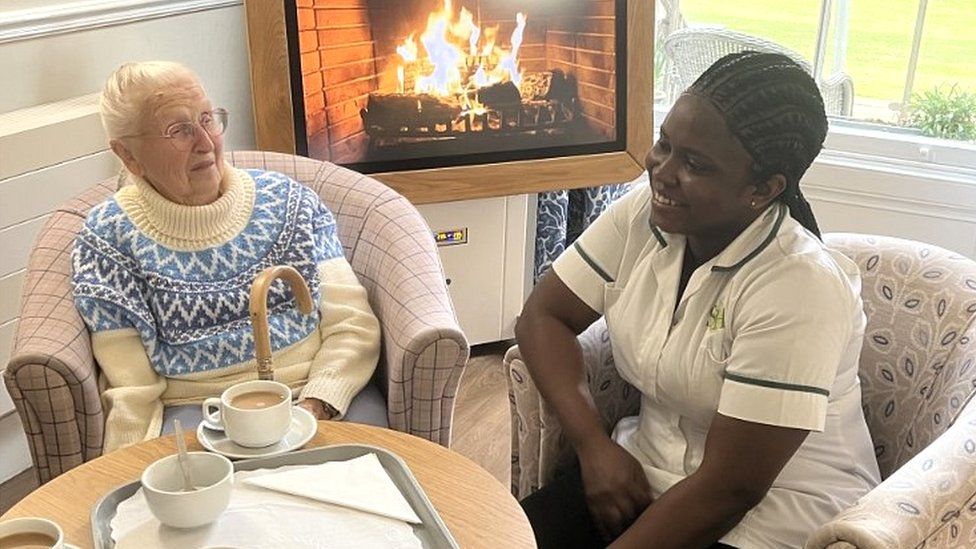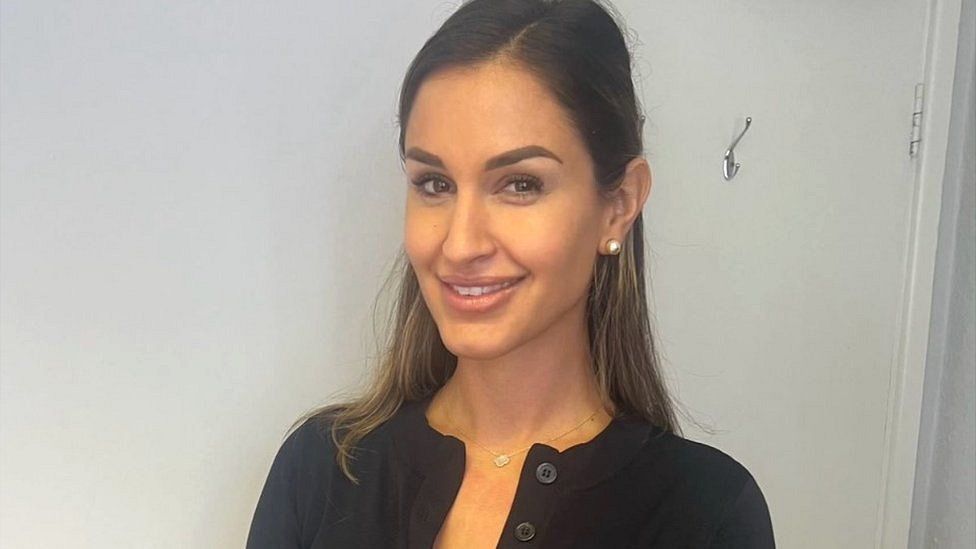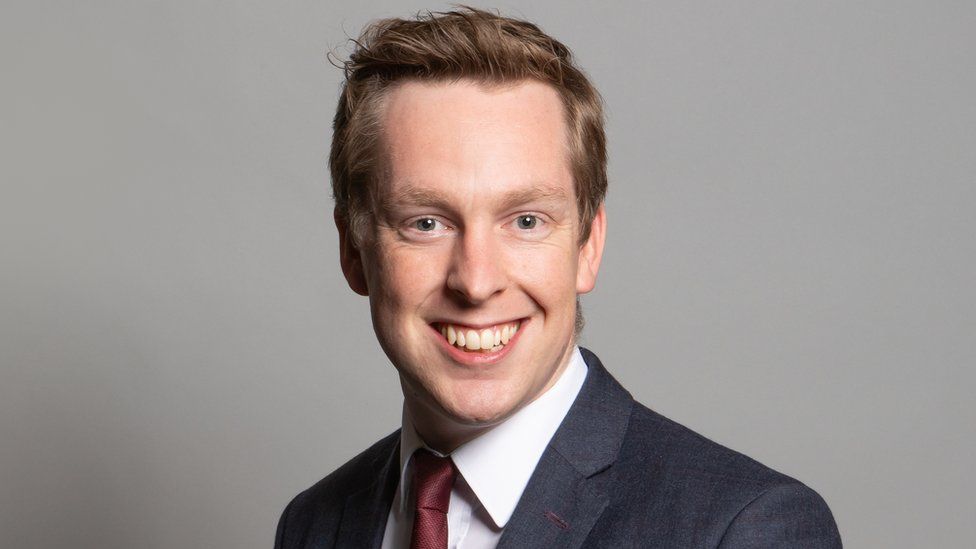The government approach to recruiting staff for care homes from overseas has been described as “dangerous” by a leading provider.
As part of Home Office plans to cut migration levels, it is stopping overseas care workers from bringing their families with them to the UK.
Ruth French, operations director of Suffolk-based Stow Healthcare, said there was a major shortage of staff.
The government said it had unveiled measures to support more care workers.
Mrs French – who has seven care homes in Essex, Norfolk and Suffolk – said the firm struggled to recruit enough staff.
There were 152,000 adult social care vacancies in England in 2022-23, equivalent to 9.9% of all roles.
Mrs French said about 25% of her staff were from overseas and described the change to government policy as a “real concern”.
She said if she could recruit locally, she would.
“I’d love to be able to go to Great Yarmouth, it would be a cheaper option for me. We don’t have enough nurses in this country. There was a 13% drop last year in the applications for those wanting to go and study nursing,” she said.
“The situation is only getting worse and that’s why it is important for us to be looking overseas and that’s why the approach of this government is dangerous.”
Nurse from Ghana

Ghanaian Harriet Mensah, 28, a nurse with Stow Healthcare based in Ford Place care home in Thetford, Norfolk, arrived as a carer and passed exams.
“Growing up in Ghana, I always dreamt of practising nursing somewhere in Europe,” she said.
She brought her husband on her visa. That was essential for her to choose the UK.
“My husband has played a vital role. He has been able to help me take care of my child. Obviously I can’t do it alone,” she said.
From the spring, this will not be possible for new care workers coming from abroad. But if they come to work in the NHS, they will be able to bring family. That division has upset the care sector.
Returning home
Yasamine Watts, who runs Nene Valley Care Homes – which has three sites in Peterborough and Market Deeping in Lincolnshire – is allowed to have six foreign care workers out of 40 positions. She wants to increase the allocation by six more.
Ms Watts said recruitment was “really difficult for a few years, but now we are really struggling”.
She said every week, foreign care workers contacted her to be sponsored because they had lost their jobs due to rising costs at their care homes, “but because I don’t have the allocations I can’t take them on”.
They were going back to their home countries in Africa and Asia when “they are really needed here”, she said.
Ms Watts added that if the shortages could not be met, care homes would have “to take on staff that don’t have the skills to work in a care home”.

The legal migration minister and Corby MP Tom Pursglove told the BBC Politics East programme that the changes to foreign care worker visas was right.
“We feel there is a much better balance to strike when meeting those workforce requirements,” he said.
“To put it in some context, what we saw were 100,000 care workers coming to the UK with 120,000 dependents and that just can’t be right.”

The government said: “The Department of Health and Social Care has unveiled a package of measures that will reaffirm care work as a career, helping to recruit and retain talent by providing new, accredited qualifications, digital training and funded apprenticeships.”



